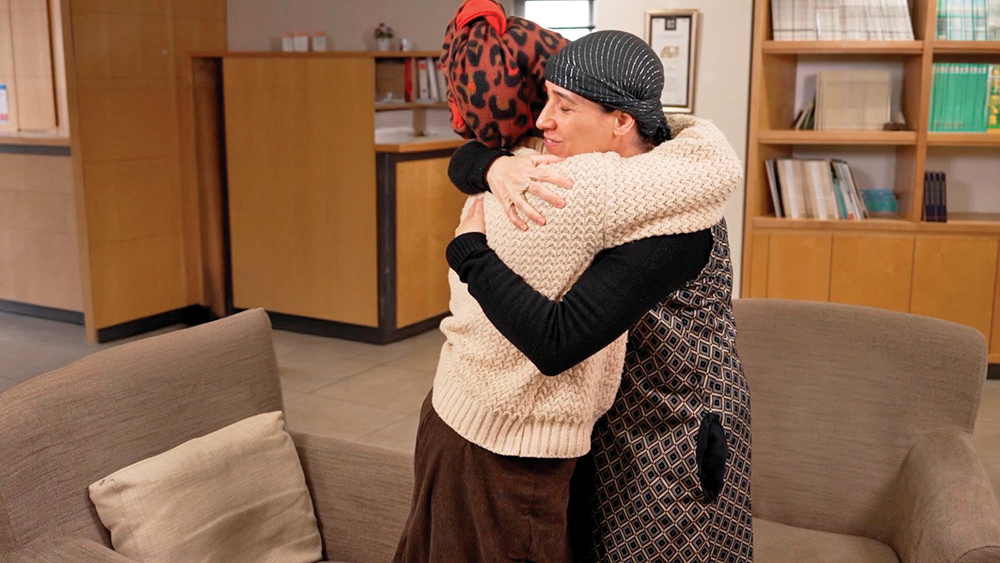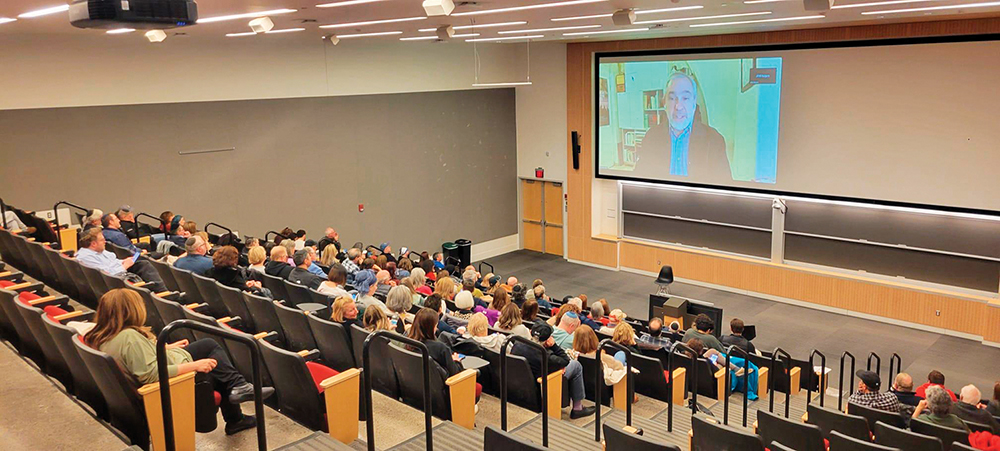And Noach found favor in the eyes of Hashem. These are the generations of Noach. In his time Noach was a righteous man; and was without blemish; Noach walked with Hashem. Noach fathered three sons: Shem, Cham, and Yeffes. (Bereishis 6/8-10)
Rashi explains; These are the generations of Noach—Noach was a righteous man: Since the Chumash mentions Noach, it tells his praise, as it is said: “The mention of a righteous man is for a blessing.” Another explanation for why the names of Noach’s children are not mentioned immediately following the phrase, “These are the generations of Noach,” is to teach you that the main generations [progeny] of the righteous are their good deeds.
Zera Shimshon asks four questions.
Firstly, Rashi explains the reason the Chumash speaks of Noach’s praise was because Noach’s name was mentioned. However, Rashi doesn’t explain why Noach’s name was mentioned at all! This whole pasuk seems to be extra. In the last pasuk of last week’s parsha it is written that Noach found favor in Hashem’s eyes, this implies that Noach was righteous. In the next pasuk it is written that he fathered three children. What is this pasuk adding?
Secondly, why are the phrases, “Noach found favor in Hashem’s eyes” and the phrase, “Noach was a righteous man; in his time he was without blemish” written in two different pesukim as if they are not at all connected? It would seem that the reason Noach found favor in Hashem’s eyes was because Noach was a tzaddik. This being so, these two phrases should have been written together in one pasuk.
Thirdly, since Noach’s sons were also saved from the Flood, why is it written at the end of last week’s parsha “and Noach found favor in the eyes of Hashem” and not “and Noach and his sons found favor in the eyes of Hashem”?
Fourthly, Zera Shimshon asks the question of the Yeffeh Toar. The Medrash explains that whenever a pasuk begins with the word “these,” or “aileh” as opposed to, “and these,” “v’aileh” it comes to separate and exclude what is mentioned from what had been previously mentioned. In our pasuk, the Medrash explains, the words, “These are the generations of Noach ….” comes to teach that Noach was not like the rest of the people in his generation. The rest of the people in his generation were not righteous like Noach and his children.
The Yeffeh Toar asks; from the way the Chumash describes Noach’s generation it is very obvious that Noach was very different from them, so why did the pasuk have to write, “these….” to teach us this?
To begin answering these four questions Zera Shimshon asks another question; what is the pasuk, “and Noach found favor in Hashem’s eyes” telling us? Since Hashem saved him, obviously he found favor in the eyes of Hashem?
Zera Shimshon explains in light of the Medrash (Zohar Noach 67b) although Noach was a tzaddik, Hashem found fault in him since he didn’t davven for his generation to do teshuva. To such a degree that in this week’s haftarah the navi refers to the Flood as, “The waters of Noach,” which implies that Noach was the main cause of the Flood!
Therefore, one might think that since Hashem didn’t hold Noach in the highest esteem because he didn’t even try to help his generation, Hashem didn’t save him because he went in Hashem’s ways. Rather Hashem saved him just to save mankind. It is therefore written in the pasuk that Noach was really special and Hashem saved him because he found favor in Hashem’s eyes” and not only because Hashem had no other way to save mankind.
Zera Shimshon answers the third question, why isn’t it written that Noach and HIS SONS found favor in the eyes of Hashem since Hashem also saved them, in light of Rashi who explains that in that generation only people 100 years and older were held responsible for their actions. This implies that people under 100 years of age were considered like children whose actions are neither good nor bad. Therefore, it could not be written that they found favor in the eyes of Hashem because their actions are really insignificant and there was no reason for them to find favor in the eyes of Hashem.
However, according to this it is difficult to understand why the others who were also younger than 100 were punished, since the actions of a child are not considered to be bad or good?
The answer is that in truth they didn’t die because of their bad deeds; The state of the world in general was so bad at that time that everything had to be destroyed whether the individual deserved it or not.
The reason Noach’s children were saved was not because of their own righteousness but because Noach, their father, was a tzaddik. This explains what the pasuk, “And these are the generations of Noach” is coming to teach us and why the phrases “and Noach find favor in the eyes of Hashem” and “In his time Noach was a righteous man, he was without blemish” are not written together. The reason Noach was saved was because he was good enough to “find favor in the eyes of Hashem.” However, the level of Noach’s righteousness was only enough to save himself—not enough to also save his children. The reason his children were saved was because, “Noach was a righteous man in his time; He was without blemish.” Since the phrase, “and Noach find favor in the eyes of Hashem” is explaining why Noach was saved and the pasuk, “In his time Noach was a righteous man; He was without blemish” is explaining in what merit his children were saved, they are really not connected and therefore are not written next to each other.
According to this we can also understand why the pasuk wrote “aileh.” It is not to differentiate between Noach and the rest of the generation. This is obvious. It is rather to differentiate between Noach’s children and the rest of the generation who were less than 100 years old. Even though they both were considered as children who have no merits and are not blamed for their actions, there was still a difference between them: Noach’s children were saved while the rest of the people were destroyed in the Flood.











